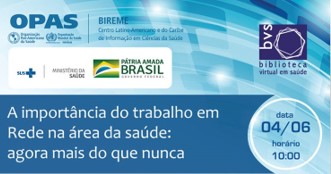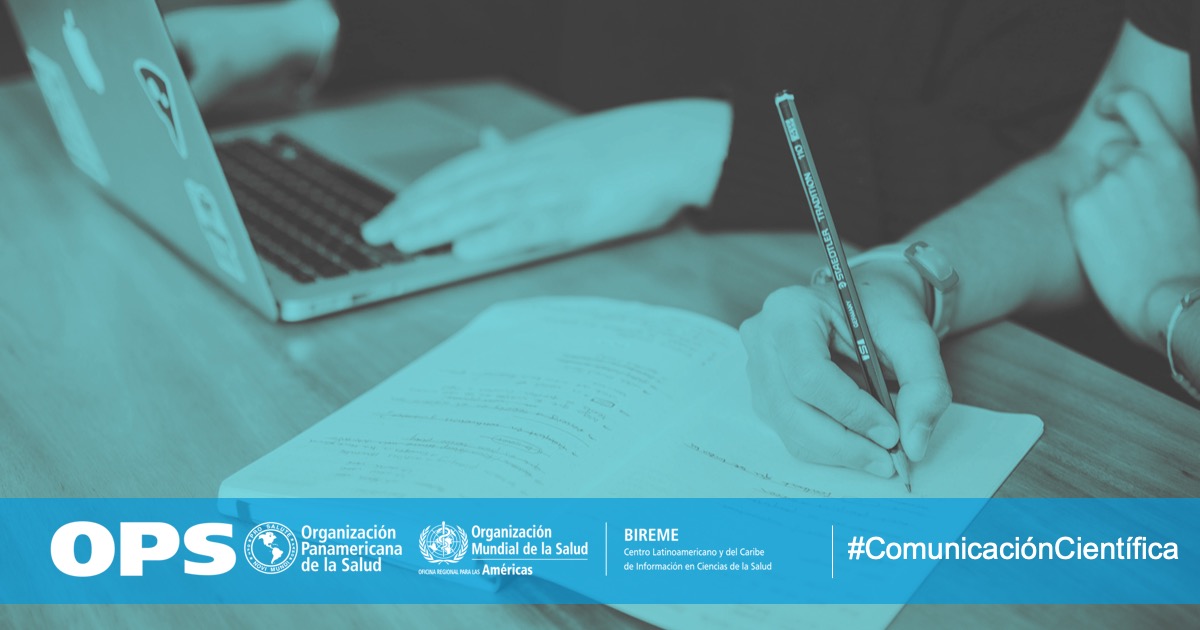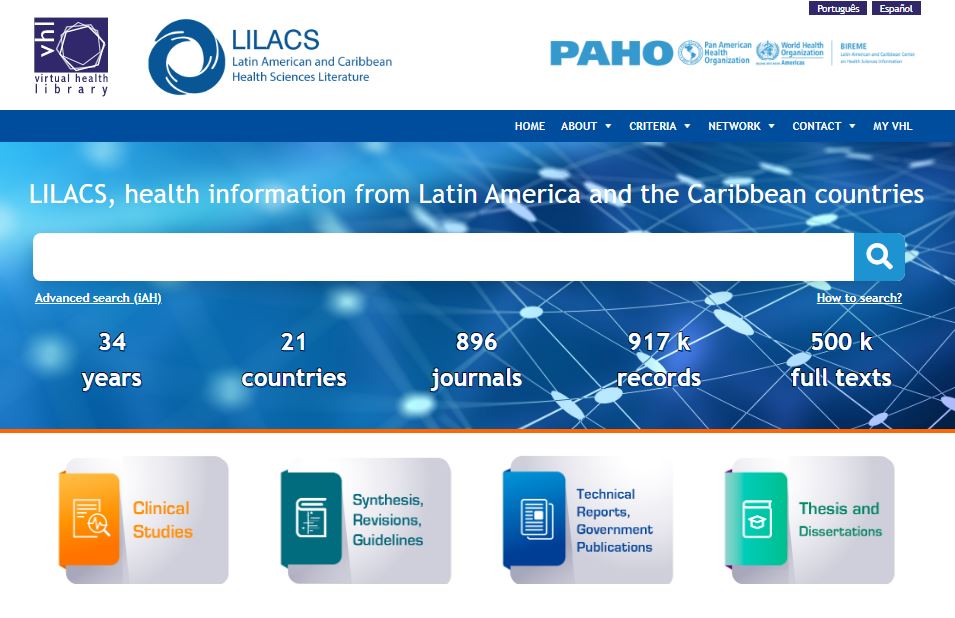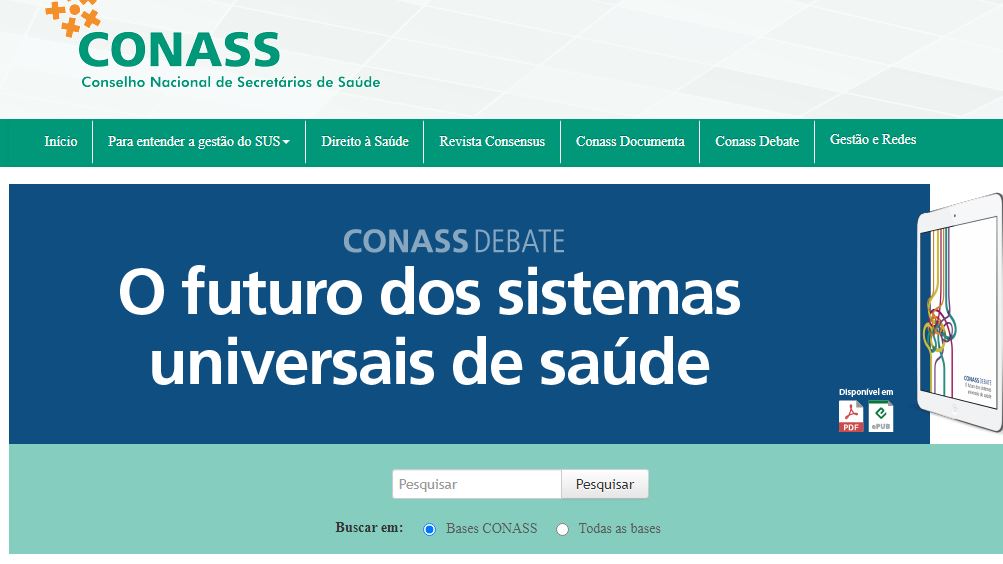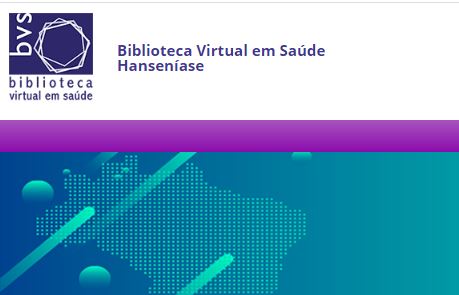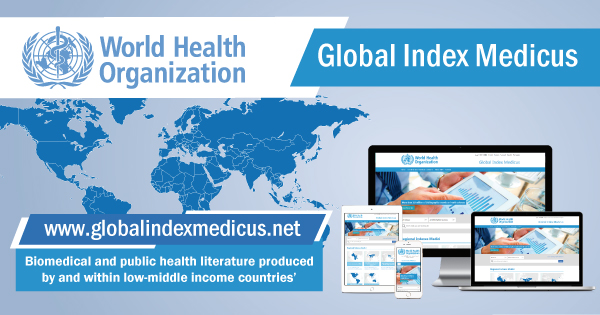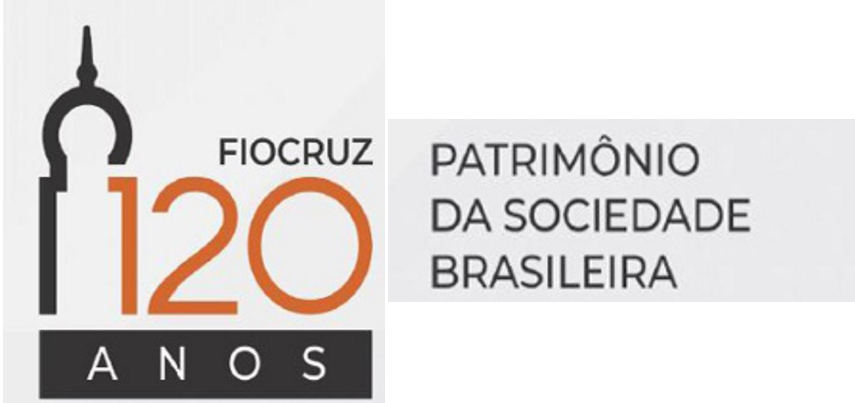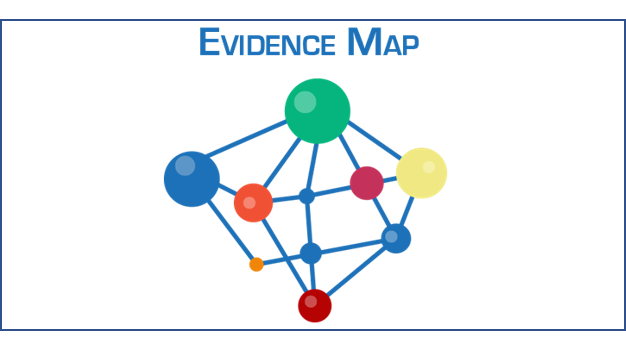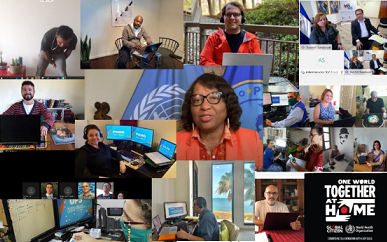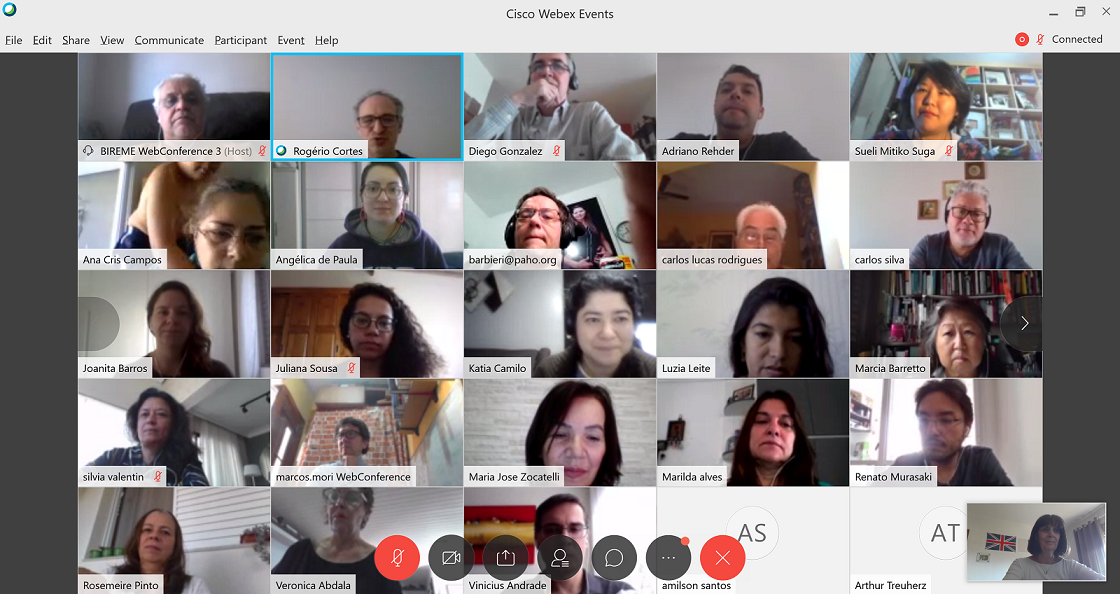With the theme “The importance of working within networks in the health area”, on June 4th took place the first of a series of six webinars for the Networks that make up the Brazil VHL Network. The initiative is part of the cooperation established between BIREME and the Ministry of Health, through CGDI/SAA/SE/MS, and aims to strengthen the Brazil VHL Network and, particularly, the BiblioSUS Network.
The VHL and BiblioSUS Network Webinar Series begins
